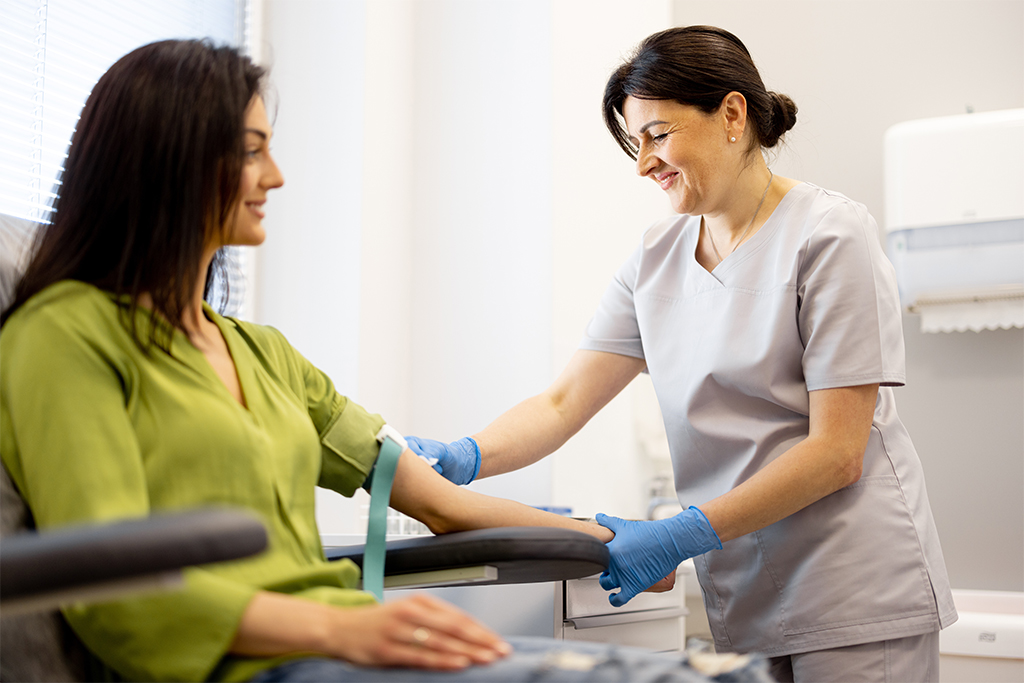 Join Membership
Join Membership
We Are Now Open On Saturdays
50% off all dental treatments and 25% all medical services amazing value for only £20 a month

When it comes to sexual health, testing plays a crucial role in protecting yourself and your partners. Many people assume that if they have recently had a blood test as part of a routine health check, this would automatically include screening for sexually transmitted diseases (STDs). But is this actually true? Can routine blood tests really detect STDs, or is specialist testing required?
In this article, we will break down what routine blood tests usually cover, how STD testing works, which infections can be detected by blood tests, and why seeking dedicated sexual health screening is important for peace of mind.
Routine blood tests are a common part of general health check-ups in the UK. They are designed to provide an overall picture of your well-being by measuring key markers in your blood. Depending on your doctor or clinic, these tests may include:
These are extremely useful for detecting conditions like anaemia, diabetes, liver or kidney problems, and heart disease risk. However, routine blood tests are not automatically designed to detect sexually transmitted infections.
The short answer is: not usually. Routine blood tests carried out during a general health check do not automatically screen for STDs.
Most sexually transmitted infections require specific tests, and unless you specifically request STD screening, these won’t be included. For example:
So, if you have had a routine blood test and want to know whether you are clear of STDs, the answer is likely to be no—unless you requested dedicated sexual health screening at the same time.
While routine blood tests don’t automatically include STD screening, some infections can indeed be identified using blood samples:
These tests are highly specific and are only carried out if they are requested or if you attend a sexual health clinic.
The main reason routine blood tests don’t usually detect STDs is that they are designed for different purposes. A standard health check looks at your general well-being, while STD screening focuses on identifying infections transmitted through sexual activity.
Testing for STDs requires different methods, such as:
Unless these are requested, you won’t know your STD status from a general check-up.
Getting tested for STDs is essential if you are sexually active, especially if you have had unprotected sex, a new partner, or multiple partners. Many STDs do not show symptoms straight away, meaning infections can go unnoticed for months or even years.
For example:
This highlights why relying on a routine blood test for reassurance is not enough.
Experts recommend testing if:
Even if you have no symptoms, regular testing is a responsible way to protect yourself and your partners.
For many people, accessing NHS sexual health services can mean waiting in long queues, limited appointment availability, or concerns about privacy. In these situations, Private STI Testing in London is an excellent option.
Private testing ensures confidentiality, flexible appointment times, and rapid results. Many private clinics in London offer same-day or next-day testing, covering a wide range of infections beyond the basics. This makes it easier to stay on top of your sexual health without delays or stress.
Additionally, private testing provides a more personalised experience. You can speak openly with a doctor, receive tailored advice, and start treatment quickly if needed. Choosing Private STI Testing in London means you don’t need to worry about long waiting times or limited access to care.
If you decide to book an STD test, the process is straightforward and discreet:
Catching an STD early can make all the difference. Most infections are treatable with antibiotics or antiviral medications, and even those that are not curable, such as HIV, can be managed effectively with early treatment.
Early testing prevents complications such as infertility, pregnancy risks, or long-term organ damage. It also helps stop the spread of infections to others.
So, can routine blood tests really detect STDs? The truth is that while some STDs can be identified with blood samples, routine blood tests don’t usually include them. If you want to know your sexual health status, you need to request dedicated STD testing.
Being proactive about your sexual health is nothing to be embarrassed about. In fact, it’s one of the most responsible steps you can take for yourself and your partner. With accessible options for both NHS and private testing, there is no reason to delay.
Book your appointment today at South Kensington’s trusted private clinic.

